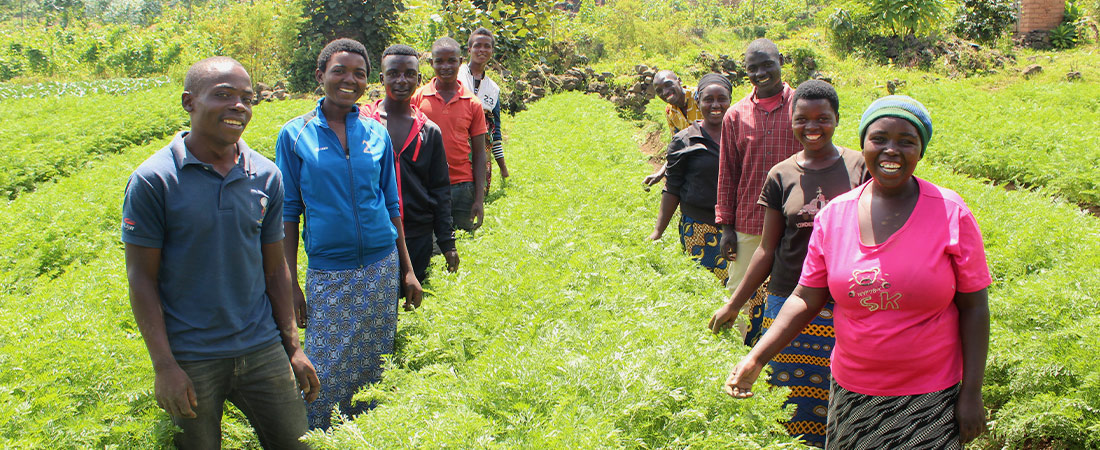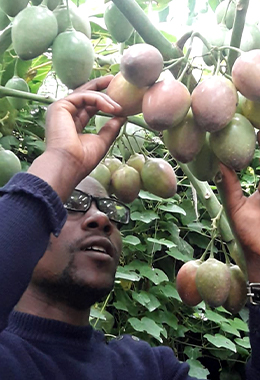In Rwanda, Youth in Agribusinesses Cope with Lockdown

Despite the lockdown for COVID-19 imposed by the Rwandan government on March 15, Delphin Hakizimana has been able to find a way to continue with his farming business, earning a livelihood while also finding a safe way to provide needed fresh food to his customers.
Delphin.jpg

Hakizimana is one of the thousands of youth who have completed the USAID Huguka Dukore Akazi Kanoze’s youth employability skills program. After finishing the program in mid-2019, he formed a Savings and Internal Lending Community (SILC) group with some of his fellow participants, which helped him secure a loan at a local financial service provider.
“That’s how I got my first seed capital,” Hakizimana says.
Drawing on his farming experience, the 26-year-old started growing tree tomatoes on a piece of land inherited from his late parents. Just as the crops started ripening on his fruit farm, and on many other farms in the neighboring villages across Nyabihu District, the COVID-19 pandemic brought a total lockdown in Rwanda.
Hakizimana continued to operate his business, following the government lockdown directives for farmers, which allowed him to continue farming while maintaining social distancing and reducing the number of people farming at any given time. He manages to inspect his farm daily and maintains the sales of tree tomato fruits.
Hakizimana has never stopped doing his job, and the farm is still flourishing. As part of his protective measures, Hakizimana operates his fruit sales using cashless transactions.
“I know all the risks lying behind the doors, but the government has made it clear especially for us operating in the food industry. I have to keep a distance with my employees while harvesting fruits in the farms, and the same distance is always maintained while trading with other farmers,” says Hakizimana in a phone interview. “Due to the love and passion I have for agriculture, I couldn’t cross my arms and wait for the springtime of this pandemic.”